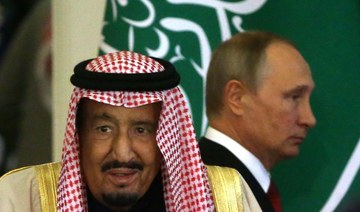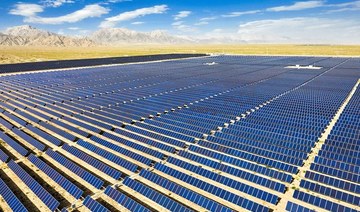RIYADH: The National Investment Strategy, launched by the Crown Prince Mohammed bin Salman last October, is one of the most important pillars to achieve Vision 2030, according to King Salman bin Abdulaziz.
In his Shoura Council speech on Wednesday, the monarch said the strategy will entail the pumping of investments worth up to SR12 trillion ($3.19 trillion) through projects and initiatives.
In particular, the Shareek program — which aims at strengthening the Kingdom’s private sector — is set to inject SR5 trillion, he said.
The strategy will contribute to developing the economy and diversifying its sources, in addition to developing infrastructure, improving quality of life, and providing new job opportunities, he added.
The financial sustainability policies have positively reflected on the gradual recovery of the local economy, and new investments in the Kingdom have continued their steady growth, which was evident in the performance of activities until the end of the third quarter of this year 2021, King Salman said.
He added that there are expectations of achieving financial surpluses in the state’s general budget in 2022 and lower public debt as a share of GDP to 25.9 percent, compared to 29.2 percent in 2021.
As for the privatization programs that have been implemented since 2018, they will increase and speed up the quality of services, generate investment opportunities and enhance the sustainability and competitiveness of the Kingdom’s economy, he said.
On the Public Investment Fund front, the King said it aims to invest SR3 trillion in the national economy by 2030, which will raise the volume of public spending until that date to SR27 trillion — the largest volume of spending witnessed by the Kingdom in its history.
This will result in achieving economic and social development goals, and keeping pace with the Kingdom’s vision and placing its economy among the 15 largest economies in the world, he explained.
King Salman praised the financial sustainability policies implemented by the state, which reflected positively on the gradual recovery of the Saudi economy, as investments continued their steady growth, which was evident in the performance of the third quarter of 2021, with expectations of achieving financial surpluses in the 2022 budget.
He also emphasized the Kingdom’s success in dealing with the repercussions of the Coronavirus pandemic, which led to the influx of Haj and Umrah pilgrims, as 17.5 million Muslims were able to perform Umrah during the month of Ramadan only.
The National Transport and Logistics Strategy launched by the Crown Prince affirms moving forward with economic development and reform, working to develop this important sector and unleashing its potential as part of the vision’s initiatives, the King said.
The strategy will work on diversifying the local economy and consolidating the link with the global economy and developing local content, to 33 percent of the sector’s costs, to support sustainable development, he added.
The King also lauded milestones achieved in the education sector, as it sustained the pandemic through the use of both e-learning and in-person attendance. This was possible due to the development of the digital infrastructure, which allowed the transfer of large data.






















